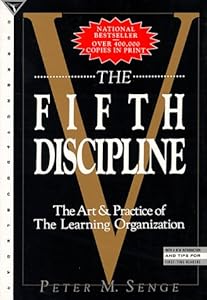
Peter Senge, author of The Fifth Discipline, Senior lecturer at MIT and Founder of the Society for Organizational Learning shares his perspectives on leadership and systems thinking. Senge focuses on the problems that are most difficult to solve and the mental models today’s leaders need in order to build a smarter planet. Working smarter means working in ways that are collective and are based on collective intelligence across cities and supply chains to produce social, ecological and economic well being.
The problem with school he says is that it is very individualistic. It is very much about the smart kids and the dumb kids. That is not the kind of smartness we need. The smartness we need is collective. We need communities that work differently. The kind of smartness we need will never be achieved by a handful of smart individuals. It is never about the smartest guys in the room, It is about what we can do collectively.
All of us are smarter than any of us.

Thank you for sharing this resource. The idea of collective intelligence is not a new one. Vygotsky’s theory of the more knowledgeable other (TMO) which refers to anyone who may have more knowledge or experience with a task or topic and that of the ZPD (Zone of Proximal Development) which refers to what a child can learn independently compared to what a child can learn with help, directly relates to this idea (McLeod, 2007). Senge suggests that we need to do things differently in order to produce change and one of the ways we can do that is to provide opportunities for all students to work collaboratively to bring about those new ways of doing things. I find this concept very exciting. I work with struggling adolescent readers who sometimes feel dumb or inadequate because they can’t maneuver through some of the more difficult text, but if provided the opportunity to collaborate with their peers and discuss their ideas, these same students shine. Labeling kids ‘dumb’ or ‘smart’ does everyone a disservice. We need to find ways for our students to show their talents. Some of these same struggling readers are very talented with technology and have created podcasts and videos to share information and ideas. If given opportunities to show their intelligence in new and different ways, I believe all of our students will be able to participate and contribute to the production of new and different ways of doing things.
McLeod, S. A. (2007). Simply Psychology;. Retrieved 11 March 2012, from http://www.simplypsychology.org/vygotsky.html
Thank you Lauri, I really appreciate your comment! I love your comment about how your students shine when they get the opportunity to collaborate with their peers. I’m a great fan of Vygotsky’s theory of ZPD and agree it fits nicely with Senge! Thanks for taking the time to read my blog!